The Science Life
-
 Chemistry
ChemistryThese researchers are unlocking Renaissance beauty secrets
An art historian has teamed up with chemists to uncover the science behind cosmetics used around 500 years ago.
-
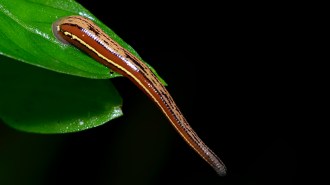 Animals
AnimalsLeeches expose wildlife’s whereabouts and may aid conservation efforts
DNA from the blood meals of more than 30,000 leeches shows how animals use the protected Ailaoshan Nature Reserve in China.
By Nikk Ogasa -
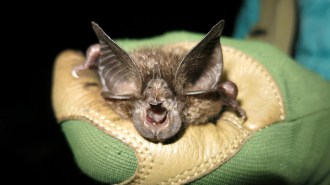 Animals
AnimalsHow scientists found an African bat lost to science for 40 years
African researchers had been searching for the Hill’s horseshoe bat since 2013. Now, the first recording of its echolocation call may help find more.
By Anna Gibbs -
 Earth
EarthHow climbers help scientists vibe with Utah’s famous red rock formations
Researchers teamed up with rock climbers to collect rare data that help them assess the seismic stability of red rock formations in Utah.
-
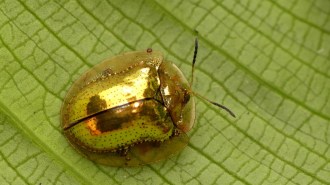 Animals
AnimalsMirror beetles’ shiny bodies may not act as camouflage after all
Hundreds of handmade clay nubbins test the notion that a beetle’s metallic high gloss could confound predators. Birds pecked the lovely idea to death.
By Susan Milius -
 Chemistry
ChemistryOne forensic scientist is scraping bones for clues to time of death
The bones of more than 100 cadavers are shedding light on a more precise and reliable way to determine when someone died.
-
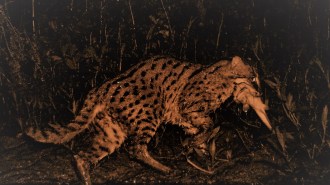 Animals
AnimalsScientists uncover the secret to fishing cats’ hunting success
Volunteers in India have helped to explain how one of the world’s semiaquatic wild cat species hunts.
-
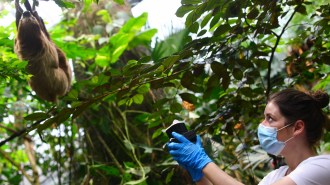 Animals
AnimalsScientists vacuumed animal DNA out of thin air for the first time
The ability to sniff out animals’ airborne genetic material has been on researchers’ wish list for over a decade.
By Jude Coleman -
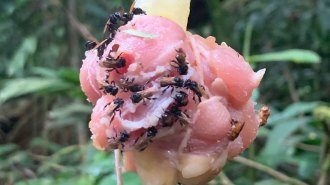 Animals
AnimalsGut bacteria let vulture bees eat rotting flesh without getting sick
Acid-producing bacteria in the gut of vulture bees let these “weirdos of the bee world” safely snack on animal carcasses.
-
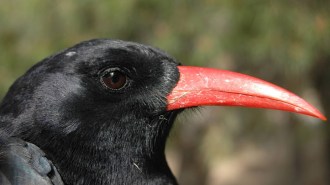 Anthropology
AnthropologyHow catching birds bare-handed may hint at Neandertals’ hunting tactics
By pretending to be Neandertals, researchers show that the ancient hominids likely had the skills to easily hunt crowlike birds called choughs.
-
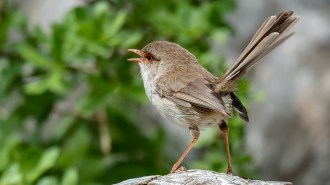 Animals
AnimalsSome birds learn to recognize calls while still in their eggs
For over a decade, behavioral ecologist Diane Colombelli-Négrel and colleagues have been studying how birds perceive sounds before hatching.
-
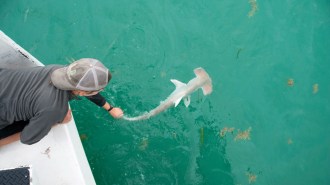 Animals
AnimalsA hammerhead shark baby boom near Florida hints at a historic nursery
Finding an endangered shark nursery in a vast ocean is like finding a needle in a haystack. But that’s just what scientists did near Miami.